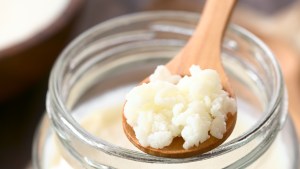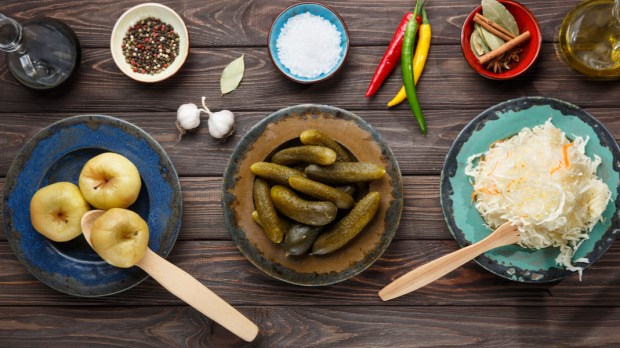The UN’s Food and Agriculture Organization defines probiotics as “live microorganisms that, when administered in adequate amounts, confer a health benefit on the host.”
Today, it is very common to eat these types of products, since advertising and the wide variety in the market bring them closer to us everyday.
But often we don’t know whether they really work, if they have the benefits some claim, and if we really need to put live organisms into our bodies. The answer is: yes, they work. They have many benefits and it’s a good idea to incorporate them into our food.
Our intestines contain hundreds of “good” bacteria that help protect our intestines from “bad” pathogens. When we come through the birth canal, we receive bacteria from our mothers. Then in our first week of life we start to receive “good” bacteria through breastmilk. If we receive formula, we will obtain fewer good bacteria in the colon, which can lower our defenses and lead us to get sicker, but there are ways to supplement and in those first few days, our digestive system is quickly colonizing.
So from birth, we have some degree of good flora that plays a protective role but that also fulfill other functions, such as generating energy for the intestinal cells, producing vitamin K and folic acid, and protecting the cells from toxins.
But what happens if our intestinal flora changes?
When the balance of our intestinal flora is changed — perhaps by antibiotics, infections, diarrhea, low-fiber diets, chemotherapy or radiotherapy treatments, malnutrition, and other factors — we may end up with intestinal inflammation. That’s when probiotics are especially handy.
The products we find in the market generally offer bacteria that can survive their passage through the digestive tract and can proliferate in the intestine. The three most used and studied species are: Lactobacillus acidophilus, Lactobacillus case, and Bifidobacterium spp.
The foods that contain these good bacteria area mainly fermented milks, yogurts, and cheeses. You can also take them in capsules. Some examples: Actimel, Yakut, Active Acti Regulars, Bisques, and others.
Probiotics can also be found in sauerkraut and kimchi, apple cider vinegar, brine-cured olives, tempeh, miso, raw cheese, kombucha, and gherkin pickles, among others.
They offer many benefits:
- It is scientifically proven that probiotics help with digestive problems, preventing infectious diarrhea and also treating rotavirus diarrhea, clostridium difficile, and issues associated with antibiotics. It has a probable effect (not yet scientifically proven) on helping ease constipation, lactose intolerance, and traveler’s diarrhea.
- In immune system changes, they help to prevent and treat atopic dermatitis by modulating the immune response. So if your skin flares up with red patches from atopic dermatitis, eat your Greek yogurt!
- Other possible benefits that still need to be studied more: they impede or slow the appearance of some types of cancer, such as colon cancer, cut down on relapses of inflammatory gut diseases such as Crohn’s and chronic ulcerous colitis (CUC), and they diminish necrotizing enterocolitis in newborns. They can also get rid of bad breath, since they destroy candida.
In the case of healthy people, there is little evidence that eating probiotics every day helps, but there is also no evidence that eating them is harmful in any way.
So, probiotics can be part of a balanced, healthy, diverse diet as a way to prevent or treat certain pathologies, when used in a controlled way that meets the person’s needs.

Read more:
Apple cider vinegar keeps the doctor away — but how should you drink it?

Read more:
Why you should put probiotics on the menu for 2018
This article was originally published in the Spanish edition of Aleteia and has been translated and/or adapted here for English speaking readers.

